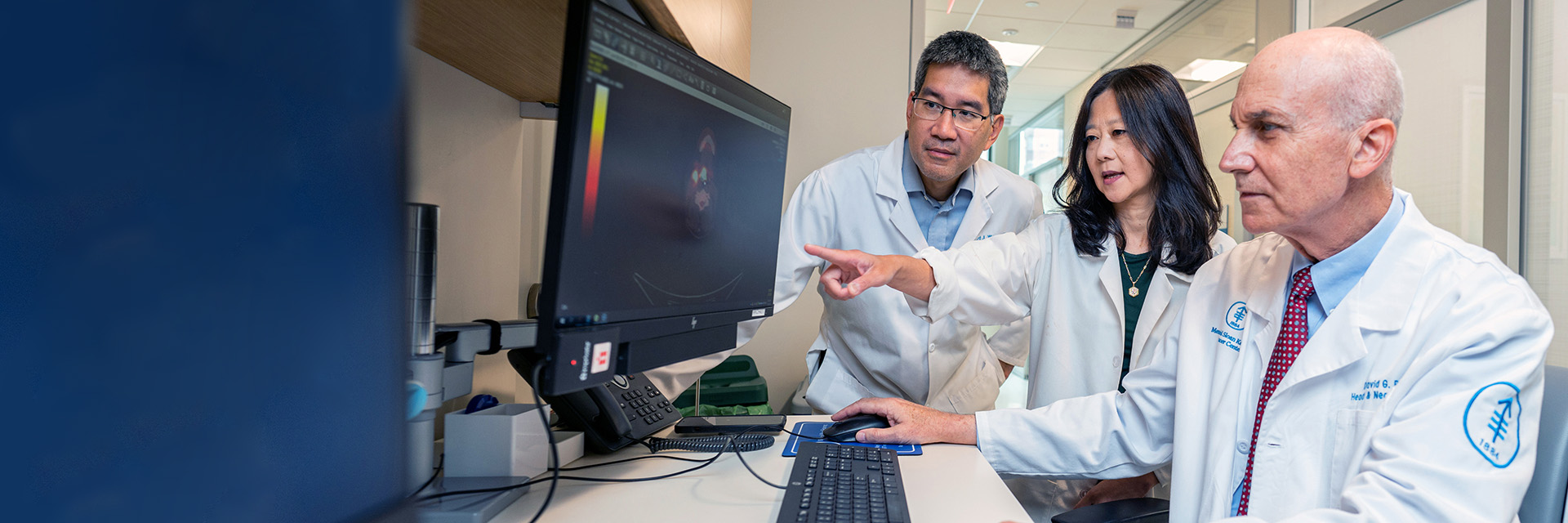
HPV and the cancers caused by the virus are everyone’s concern. The good news is that in many cases, these cancers can be prevented, thanks to the HPV vaccine that is available to people from their pre-teens up to 45 years old.
HPV is so common that nearly all sexually active people get the virus at some point in their life—unless they get the HPV vaccine. Most people will clear the virus. But chronic HPV infection can cause several types of cancer, including cervical cancer, cancers of the head and neck, and anal, vaginal, and penile cancer. Each year, more than 34,000 people in the US will develop cancers linked to HPV.
Life-Changing HPV Research at MSK
MSK is one of the world’s leading institutions for the investigation of HPV-related cancers.
Among efforts on many fronts, MSK’s doctors and scientists are conducting clinical trials that could be a “game changer” for treating HPV-positive throat cancer, by using far less radiation over fewer sessions, causing less side effects. MSK investigators are also revealing new insights into the genetics of HPV-related head and neck cancers which turn out to have important differences from cancers that are not caused by HPV. This work can help guide the development of innovative, personalized drug therapies to exploit these differences.
Another MSK clinical trial investigates if monitoring patients’ blood to check levels of HPV genetic material called cell-free DNA may help identify people who do not need radiation therapy after surgery to prevent cancer relapse. MSK researchers are also finding ways to identify HPV cancers earlier, when they are more easily treated. Advances like these will help prevent HPV cancers for decades and are a major focus of the Center.
Too many people risk developing cancers that could have been prevented because of a lack of understanding about HPV and vaccination rates that are too low. That’s why MSK established the Center for Research, Prevention, and Treatment of HPV-Related Cancers.
The Center’s mission is to raise awareness of the disease and the HPV vaccine and advance our understanding of HPV and the cancers it causes.

Fast Facts
- HPV vaccination at age 11-12 could prevent more than 90% of cancers caused by HPV from ever developing (source: Centers for Disease Control and Prevention)
- Every year, about 19,400 women and 12,100 men experience cancers caused by HPV.
- Cases of HPV-positive cancer in the back of the throat are on the rise, especially in men (CDC)
- There are more than 13,000 cases of HPV-positive throat cancer diagnosed in the U.S. each year (Source: CDC)
- Even with screening, HPV causes 10,900 cases of cervical cancer each year in the US. Every year in the US, 4,000 women die of cervical cancer (Source: CDC)
- HPV is linked to 196,000 cervical precancers found in screening each year, which can require medical procedures to remove and can cause problems during pregnancy (source: CDC)
HPV, Cancer, and the HPV Vaccine
The efforts to prevent HPV cancers should be a great success story, thanks to a vaccine that can prevent nearly all cancers, plus advances in screening and early detection. But many people are at risk of cancers that could be prevented.
These resources can help answer your questions:





